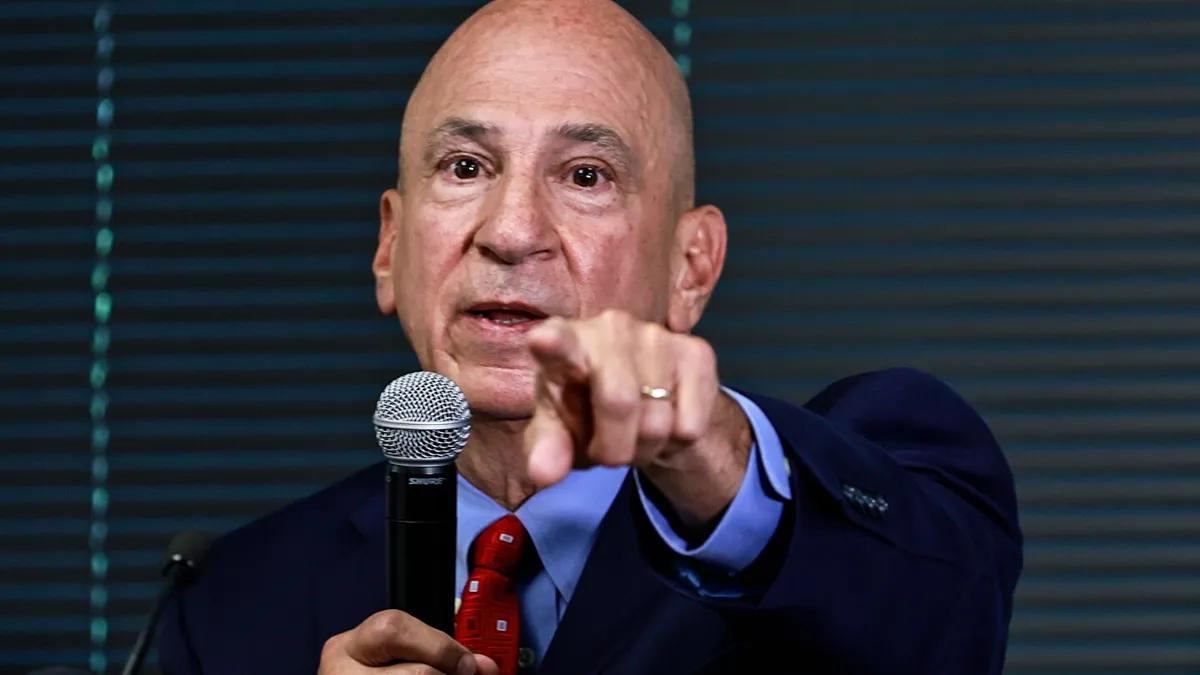
In a significant development, a judge dismissed the Georgia election interference case against former President Donald Trump and several others on Wednesday. This ruling came after the newly appointed prosecutor, Pete Skandalakis, indicated he would not pursue the charges, effectively ending the legal proceedings aimed at holding Trump accountable for his attempts to overturn the results of the 2020 presidential election.
Earlier this month, Pete Skandalakis, the executive director of the Prosecuting Attorneys’ Council of Georgia, took over the case from Fulton County District Attorney Fani Willis. Willis was disqualified due to an “appearance of impropriety” stemming from a romantic relationship with the special prosecutor she had appointed to lead the case. Following Skandalakis' filing, Fulton County Superior Court Judge Scott McAfee swiftly issued a one-paragraph order dismissing the case entirely.
The origins of this case trace back nearly five years when Fani Willis announced her intention to investigate potential illegal efforts to influence the 2020 election results. A critical piece of evidence was a recorded phone call from January 2, 2021, where Trump urged Georgia Secretary of State Brad Raffensperger to “find” the votes necessary to overturn his defeat in this pivotal swing state. This case was the most comprehensive of four criminal cases brought against Trump in 2023, and its complexity made it challenging for other prosecutors to take on after Willis's removal.
The dismissal of the Georgia case marks another instance in which Trump has managed to evade serious legal consequences from multiple prosecutions that once posed threats to his political career and personal freedom. Notably, former Justice Department special counsel Jack Smith had charged Trump with conspiracy related to the 2020 election and the mishandling of classified documents at his Mar-a-Lago estate in Florida. However, both cases were dropped after Trump secured the presidency in the last election, as Smith cited the longstanding Justice Department policy against indicting a sitting president.
Trump’s lead attorney in Georgia, Steve Sadow, expressed approval of the case’s dismissal, stating, “The political persecution of President Trump by disqualified DA Fani Willis is finally over. This case should never have been brought. A fair and impartial prosecutor has put an end to this lawfare.” The Associated Press has reached out to Fani Willis for a statement regarding the dismissal.
In his court filing, Skandalakis acknowledged the seriousness of the case, stating that the allegations presented “constituted a compelling set of acts” that, if proven, would indicate a conspiracy involving multiple individuals attempting to overturn the results of the 2020 presidential election. He emphasized that the conduct alleged in the Georgia indictment “was conceived in Washington, D.C., not the State of Georgia,” suggesting that the federal government was a more appropriate venue for such prosecution.
Following the Georgia Supreme Court’s decision in September to reject Willis’ appeal of her disqualification, it became the responsibility of the Prosecuting Attorneys’ Council to appoint a new prosecutor. Skandalakis reported that he had contacted several prosecutors to take on the case, but all declined. To prevent an immediate dismissal of the case, Skandalakis appointed himself, despite not having reviewed the extensive case file, which consisted of 101 boxes and an eight-terabyte hard drive.
The indictment against Trump and 18 others was initially announced by Willis in August 2023, utilizing the state’s anti-racketeering law to allege a broad conspiracy to unlawfully overturn Trump’s narrow defeat to Joe Biden in Georgia. However, the case faced significant hurdles after defense attorneys revealed Willis’s romantic involvement with Nathan Wade, the special prosecutor she had appointed. This revelation prompted claims of a conflict of interest, leading to a series of hearings and ultimately her removal from the case.
The Georgia Court of Appeals ruled to disqualify Willis, and the state Supreme Court declined to hear her appeal, paving the way for the case's dismissal.
This case's conclusion reflects a broader trend regarding Trump's legal challenges, which continue to evolve as he navigates the complex landscape of American politics and law.